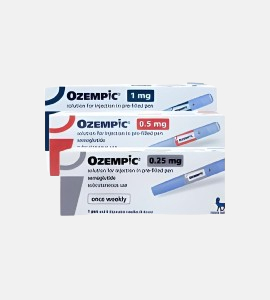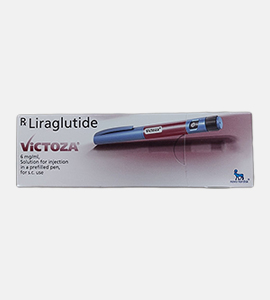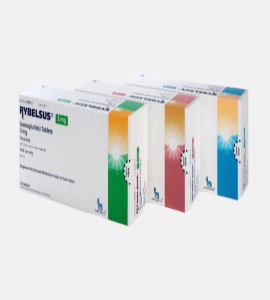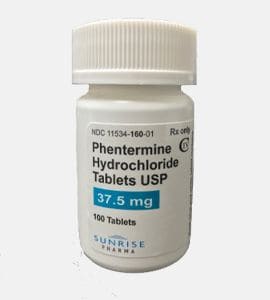Common Use
Orlistat is a lipase inhibitor used to help you lose weight and prevent it from returning. It is prescribed for obese individuals and overweight people with health problems such as diabetes, high blood pressure, or high cholesterol levels. Orlistat blocks the absorption of dietary fat into the bloodstream, reducing the number of calories you get from meals. You may use Orlistat in conjunction with a diet and exercise for better results. Note: You will see results as long as you take the medication.
Dosage and Direction
Consult with your doctor before using. Use no more than prescribed. Take it orally, generally three times daily during (or up to one hour after) each main meal that contains fat. You should take a multivitamin supplement including vitamins A, D, E, and K to ensure proper supply. This supplement should be taken at least two hours before or after you take this medication, such as before going to bed. The recommended dose for adults and children under 12 years is one 120-milligram capsule three times daily. Note: This instruction is for review only. Consult your doctor for the best results.
Precautions
Do not take this medication without doctor advice if you have chronic malabsorption syndrome or gallbladder problems. Do not use Orlistat if your medical history includes kidney stones, anorexia, bulimia, diabetes, taking cyclosporine, or any other weight-loss medicine. Weight loss begins within two weeks and can continue for years. The effects of using Orlistat for more than 2 years are still unknown. If you have diabetes, weight loss is likely to reduce your blood sugar levels. Consult your doctor about the dosage of Orlistat if you're taking oral diabetes medication or insulin. Orlistat should not be used during pregnancy, becoming pregnant, or lactating. Do not use before breastfeeding without doctor's permission.
Contraindications
Orlistat is contraindicated in:
- Malabsorption
- Reduced gallbladder function (e.g., after cholecystectomy)
- Pregnancy and breastfeeding
- Certain kidney problems
Note that the safety and efficacy of Orlistat in children younger than 12 years have not been established.
Possible Side Effects
They may include all types of allergic reactions. Stop taking Orlistat immediately if you experience severe pain in your upper stomach spreading to your back, nausea, vomiting, and a fast heart rate.
The most common side effects include:
- Oily spotting in your undergarments
- Oily or fatty stools
- Orange or brown oil in your stool
- Gas with discharge, an oily discharge
- Loose stools or an urgent need to go to the bathroom, inability to control bowel movements
- An increased number of bowel movements; stomach pain, nausea, vomiting, diarrhea, rectal pain
- Loss of appetite, weakness, clay-colored stools, dark urine, itching, or jaundice
Less serious side effects include:
- Problems with your teeth or gums
- Cold symptoms such as stuffy nose, sneezing, cough
- Fever, chills, sore throat, flu symptoms
- Headache, back pain
- Mild skin rash
If you experience any of these, stop using Orlistat and tell your doctor as soon as possible. Also, consult with your doctor about any side effects that seem unusual.
Drug Interaction
Orlistat interacts with the following drugs: Cyclosporine and Warfarin. The interaction between two medications does not always mean that you must stop taking one of them. Consult your doctor about how these interactions should be managed.
Missed Dose
If you forgot to take your dose in time, take it as soon as you remember. Do not take it if it is too late or almost time for your next dose. Do not increase your recommended dose. Take your usual dose the next day at the same regular time.
Overdose
Symptoms of Orlistat overdose are not known. If you experience any unusual symptoms, call your doctor immediately.
Storage
Store at room temperature between 20-25°C (68-77°F).
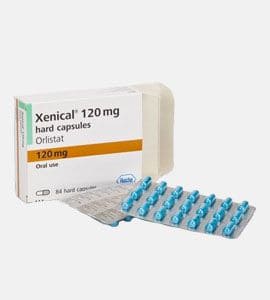

 English
English
 Deutsch
Deutsch
 Čeština
Čeština
 Español
Español
 Italiano
Italiano
 Français
Français
 العربية
العربية
 PLN
PLN



